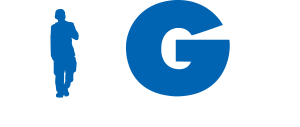Highlights
- Program Type: Intervention
- Ages: 12-17
- Effectiveness: Promising delinquency program (Read the criteria for this rating)
Familias Unidas is a Hispanic-specific, family-based preventive intervention designed to prevent problem behaviors, including conduct disorders, illicit drug use, alcohol use, cigarette use, and sexual risk behaviors by improving family functioning (e.g., parent-adolescent communication, family support) among Hispanic youth. The program aims to increase parents’ involvement with their children’s peers and school and to improve family bonding and cohesion. It also focuses on building supportive relationships among Hispanic immigrant parents, to integrate them into the greater community and to reduce feelings of social isolation. By providing parents with additional knowledge and tools to raise healthy children, the intervention aims to prevent or reduce illicit drug use, antisocial behavior, and risky sexual behavior. Both genders are served in the Familias Unidas program.
Familias Unidas operates in three stages. First, the program facilitator works with parents and builds cohesion among those in the group sessions. Next, parents are told about the three primary adolescent “worlds” (family, peers, and school), and parents are asked to voice concerns they have with their children within each of these realms. For example, one family may be worried about disobedience, another may disagree with their children’s choice of friends, and another may be worried about school performance. Facilitators then steer the intervention to address these specific problems. In the last stage, facilitators work on teaching parenting skills to the group to decrease the problem behaviors discussed in earlier sessions. Facilitators conduct home visits to supervise parent-child interactions and give further instruction on the skills addressed in the group sessions. Each family receives up to eight home visits.
Familias Unidas claims to be the only behavioral intervention program designed specifically for Hispanic adolescents and their families that has been shown to be effective in preventing and reducing smoking, illicit drug use, externalizing behavior problems, and unsafe sexual behavior.
Risk Factors
Individual
Conduct disorders (authority conflict/rebellious/stubborn/disruptive/antisocial)
General delinquency involvement
Low psychosocial maturity (low temperance, responsibility, and perspective)
Family
Antisocial parents
Child maltreatment (abuse or neglect)
Family history of problem behavior/criminal involvement
Family poverty/low family socioeconomic status
Family violence (child maltreatment, partner violence, conflict)
High parental stress/maternal depression
Lived/living with a gang member
Parental criminality
Parental use of physical punishment/harsh and/or erratic discipline practices
Poor parental supervision (control, monitoring, and child management)
Poor parent-child relations or communication
Unhappy parents
School
Poor school attitude/performance; academic failure
Endorsements
National Gang Center: Promising program
Contact
Familias Unidas
Dr. Hilda Pantin, PhD
1425 NW 10th Avenue
Miami, FL 33136
Phone: (305) 243-3021
E-mail: [email protected]
Web site: http://publichealth.med.miami.edu/graduate/research

